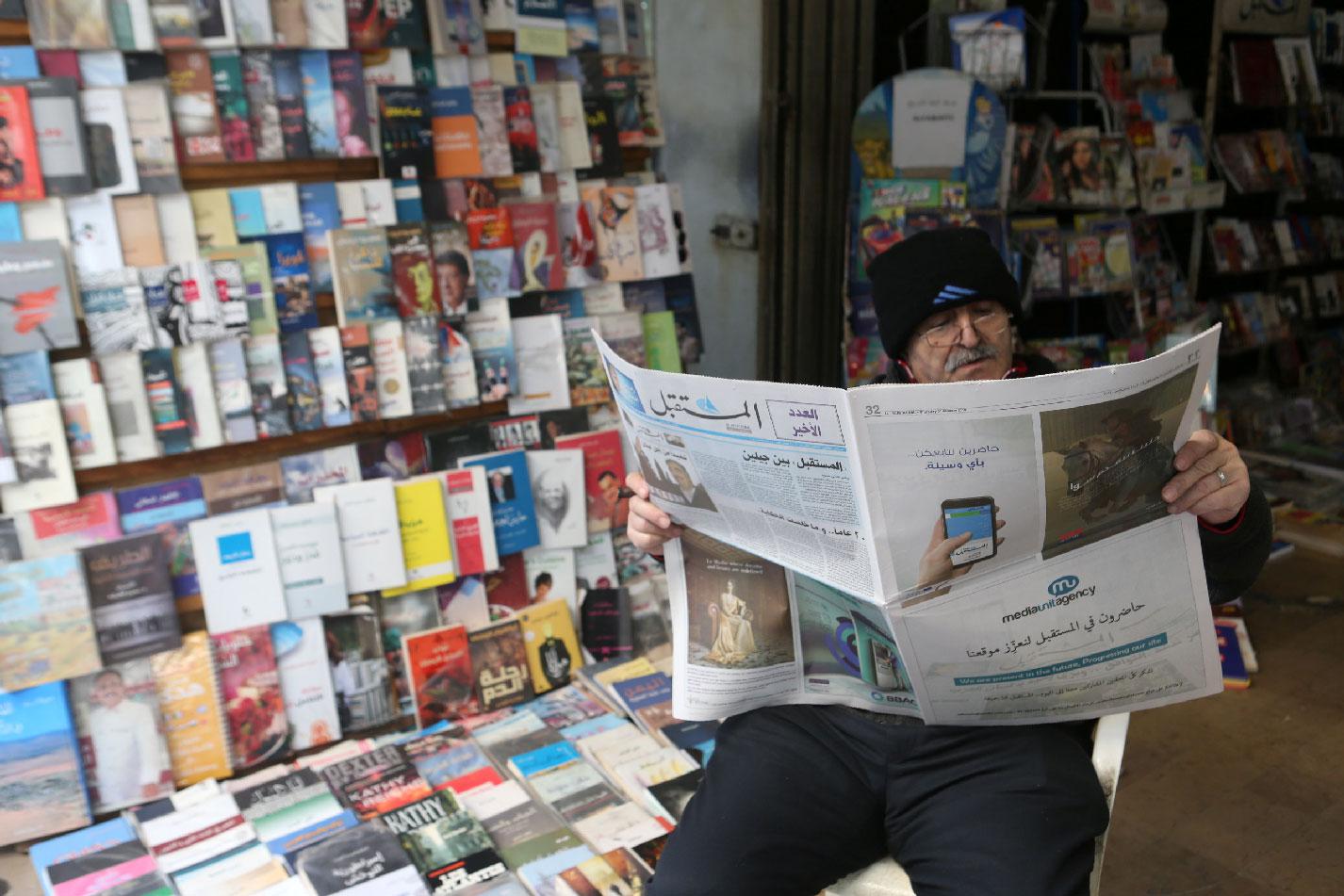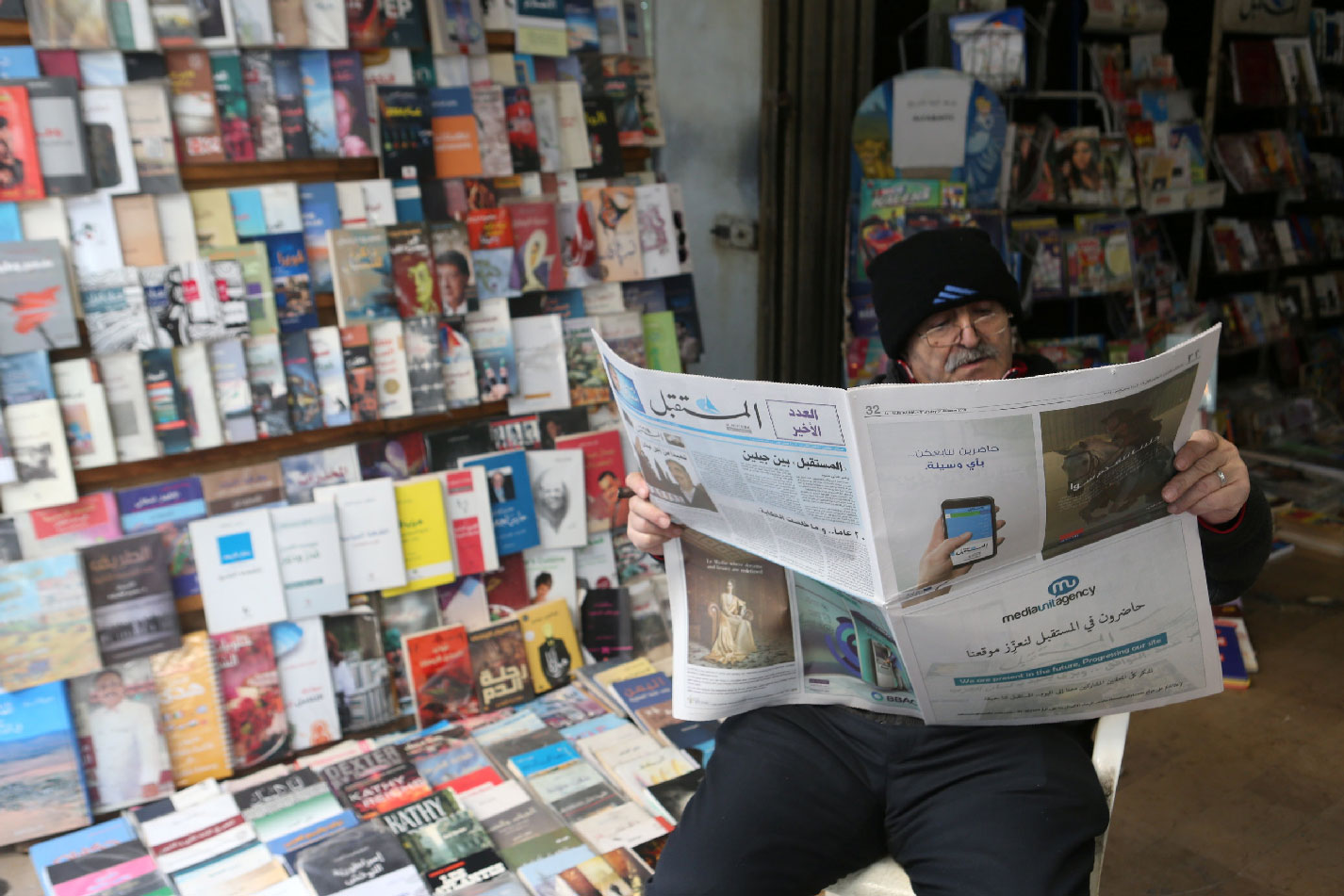Lebanese daily founded by Hariri drops off stands
BEIRUT - Readers of the Lebanese daily Al-Mustaqbal leafed through its last print edition on Thursday, its move online underscoring the challenges ailing Lebanon's press industry.
Al-Mustaqbal, the fourth prominent newspaper to disappear from Lebanon's newsstands in recent years, is owned by caretaker prime minister Saad al-Hariri and echoes his political line.
It was established in 1999 by his late father Rafik, a two-time prime minister who was assassinated in 2005, and shares the name of the Hariri political movement.
In the years after the Sunni Muslim politician's killing, the newspaper became a platform for the Future Current party launched in 2007, as it faced rivals including the Shiite movement Hezbollah.
Crisis in print
Editor-in-chief Bassam Nounou said it had fallen victim to both the wider problems of lower advertising revenue and competition with social media faced by news outlets globally, and to the financial woes of its parent organisation.
"There's a crisis in print journalism," he said, saying the newspaper hoped to reduce costs while maintaining its quality as it switched to being available solely online.
"And for Mustaqbal, there is a financial crisis. They mentioned it in all their mediums," he said, of the parent media organisation that also includes a TV station.
The newspaper suffered a financial crisis in 2015, prompting the dismissal of employees and a delay in payment of salaries, media watchdog Reporters Without Borders says.
Lebanon has long enjoyed one of the freest and most diverse presses in the Arab world, with newspapers aligned with parties from across its political spectrum.
The Hariris are the most prominent political family from Lebanon's Sunni Muslim community. Saad al-Hariri has remained in office as caretaker prime minister since an election last year, with negotiations with rival factions continuing on a new power-sharing coalition.
"Al-Mustaqbal, between two generations" was the newspaper's last front page headline after a run of 20 years since its founding, accompanied by an image of its 2005 edition after Rafik al-Hariri's assassination.
Nounou said the headline referred to the effort to move from a print-focused generation to one that consumes news online.
Thursday's edition included an editorial and a news story, followed by 30 pages of Mustaqbal front pages recording major news stories including the September 11 2001 attacks on the United States and 2008 factional fighting in Beirut.
"Al-Mustaqbal folds up its last pages today," read the editorial on the front page of the newspaper, whose name means "Future" in Arabic.
"On February 14, 2019, it relaunches digitally."
Generation of readers
On Thursday, Al-Mustaqbal editor-in-chief Hani Hammoud wrote that his newspaper was struggling to adapt to the digital era.
"In 20 years, a generation of readers has turned into consumers who feel that 120 characters... is enough for them to know," he wrote.
"The daily battle of editors at Al-Mustaqbal... has become to find a headline that doesn't make the reader feel like they already saw it the previous night on their smartphone."
Al-Mustaqbal is only the latest in a string of Lebanese newspapers to call it quits.
In September, political daily Al-Anwar disappeared from print after nearly 60 years due to "financial losses".
In June, prestigious pan-Arab newspaper Al-Hayat closed its Lebanon offices, where it was first founded in 1946 before later becoming Saudi owned.
Its printing presses in Beirut stopped the same month, leaving its international version only available online.
In late 2016, Lebanese newspaper As-Safir closed 42 years after publishing its first edition, with the founder saying it had run out of funds.
Lebanon has weathered a series of political crises since civil war broke out in neighbouring Syria in 2011, and the prime minister has for eight months failed to get all political parties to agree on a new cabinet.


